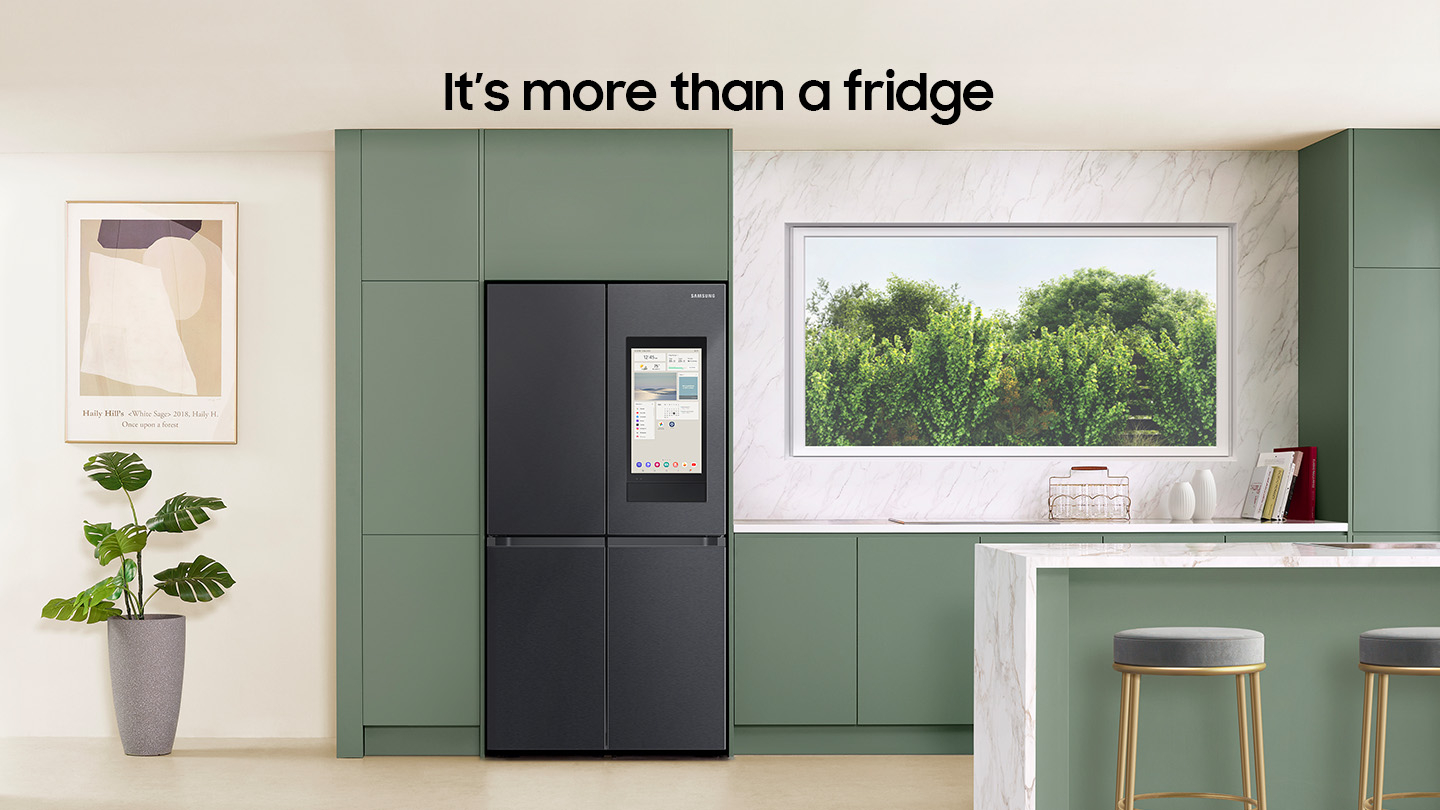This is the world’s most secure fridge - but it’s not designed to stop midnight snack thieves

When I stop to think about how many connected devices in my home capture personal and private data on a daily basis, I’m pretty tempted to throw my robot vacuum and smart speaker out of the window. If I were to add a smart fridge into the mix – which has the potential to learn everything from my eating habits to my weekly calendar and personal interests – I’d be ready to jump straight to cutting the power lines.
That’s why when Samsung announced its new French Door refrigerator with AI Family Hub, it wasn’t the refrigerator’s 21.5-inch display, new features, and functionality that really caught my interest.
Sure, its AI Vision feature is great. It can let you know what’s in the fridge and when food is about to pass its use-by date. But it can’t protect you from nefarious actors. I also love that the family hub features in-built entertainment, and can screenshare seamlessly from compatible phones... but again, that won’t keep my data safe.
That’s where Samsung Knox comes in. This smart fridge has become the first product in the industry to achieve Diamond-level verification for its security capabilities by UL Solutions, along with other Samsung Appliances featuring the Family Hub, as well as the new Bespoke Jet Bot Combo AI robot vacuum and mop.

What is Samsung Knox?
Samsung made a lot of noise about its Knox cybersecurity functionality at its global launch events this week. Knox isn’t new to Samsung; many of its phones use it, and it’s an area the company has put a great deal of emphasis on in recent months, announcing two new Series A phones with enhanced security features.
Knox is a multilayered security function, meaning it uses a variety of different methods to keep devices secure. On mobiles, that means everything from chip-level data storage to a broad spectrum of security options. When it comes to smart home devices, according to Korea IT Times, “all WiFi-enabled products come with integrated circuit (IC) chips that encrypt data, protecting it from breaches and attacks.”
At Samsung’s Paris event, Neil Rochell, Senior Manager EU home offices noted Samsung’s aim to make its appliances a “secure place for family information”, in part delivered by the end-to-end encryption offered through Knox on data stored in the cloud.
Sign up for breaking news, reviews, opinion, top tech deals, and more.
To achieve the Diamond-level certification from UL, Knox had to prove it could offer but just preventative measures, like data anonymization and software or access detection, but also proactively identify security vulnerabilities.
Rochell explained how starting with the family hub, Knox will identify and block potential attacks, as well as keeping images and videos secure. Samsung has ambitious plans to expand this trust chain technology, and that news couldn't come soon enough.
Why now?
Smart appliances are among some of the most exciting and potentially transformative devices most people will interact with in the coming years, but that doesn’t mean we’re in for an easy ride.
New features that both require and create masses of data are released near monthly – Samsung’s smart map feature is an excellent example. Plus, with AI-driven decision-making and adaptive technology involved, there’s even more context given to data from connected devices, posing a serious risk to both home security and privacy.
That’s not to say that we should fear AI features in appliances. Some of Samsung’s most exciting innovations shown at the in-person event utilized AI – for example, the AI Energy Mode, which can reduce energy costs by up to 15% in the new French Door refrigerator with AI Family Hub, and up to a whopping 70% in the new Samsung AI ecobubble Washing Machine.
Still, whenever you buy a new smart device it’s worth checking what security protections are on offer, and while you’re at it making sure you’re set up with the best antivirus software on your mobile and computing devices. As someone who’s been targeted by cybercriminals, it’s better to be safe than sorry.
You might also like

Josephine Watson is TechRadar's Managing Editor - Lifestyle. Josephine is an award-winning journalist (PPA 30 under 30 2024), having previously written on a variety of topics, from pop culture to gaming and even the energy industry, joining TechRadar to support general site management. She is a smart home nerd, champion of TechRadar's sustainability efforts as well and an advocate for internet safety and education. She has used her position to fight for progressive approaches towards diversity and inclusion, mental health, and neurodiversity in corporate settings. Generally, you'll find her fiddling with her smart home setup, watching Disney movies, playing on her Switch, or rewatching the extended edition of Lord of the Rings... again.